- Austausch & Vernetzung
- Wissen & Lernen
- Advocacy
- Unsere Themen
Digitale Gesundheitstechnologien haben ein grosses Potential, um die gesundheitliche Situation auch in abgelegenen Weltregionen zu verbessern. Sie können aber auch globale Ungleichheit zementieren. Mit einem Framework möchte MMS dem begegnen.

„Anerkenne, dass Technologie nicht unpolitisch oder a-historisch ist,“ steht im Entwurf des transnationalen Frameworks „Digital Health in International Cooperation“. Das Dokument, das Medicus Mundi Schweiz zurzeit erarbeitet und in diesem Herbst veröffentlicht werden soll, gibt den in der internationalen Gesundheitszusammenarbeit tätigen Organisationen eine strategische Systematik in die Hand, um den Einsatz von digitalen Technologien zu planen und einzusetzen. Das Framework setzt auf ein ethisches und politisch sensitives Fundament, das bestehende Machtverhältnisse und Abhängigkeiten in der internationalen Zusammenarbeit beenden möchte.
Technologien sind politisch und historisch? Grundsätzlich haben digitale Technologien ein riesiges Potential, um Menschen in abgelegenen Regionen den Zugang zu Gesundheitsdiensten zu sichern, um Daten besser für die Stärkung von Gesundheitssystemen einzusetzen oder um effektive Prävention und Therapien zu gewährleisten. Wer jedoch nicht berücksichtigt, wie diese Technologien ökonomische, politische und kulturelle Machtstrukturen transportieren und damit Ungleichheit und Ungerechtigkeit zementieren, hintertreibt ahnungslos das in ihnen liegende Potential.
Es entspricht der historisch tradierten westlichen Überzeugung, dass der technologische Fortschritt in der hier entwickelten Software und der hier produzierten Hardware liegt. Und wir sind so geformt, dass wir dabei an Google, Apple oder Samsung denken. Mit deren Produkten im Koffer reisen internationale NGOs dann zu ihren Partnern im Süden und präsentieren diese als die einzig wirksamen Lösungen.
Das Framework stellt diesem post-kolonialen Muster einen „de-zentrierten“ (de-centered) Ansatz gegenüber, der von den unterschiedlichen lokalen Bedürfnissen ausgeht und der darauf aufbauend auf technologische Lösungen setzt, die auf lokal vorhandene Kapazitäten trifft. Ein Ansatz, der auch das Recht an den eigenen Daten der lokalen Bevölkerung sichert und diese nicht einfach zur wirtschaftlichen Ausbeutung in die Zentren der Macht zurückspeist.
Martin Leschhorn Strebel
Netzwerk Medicus Mundi Schweiz
E-Mail
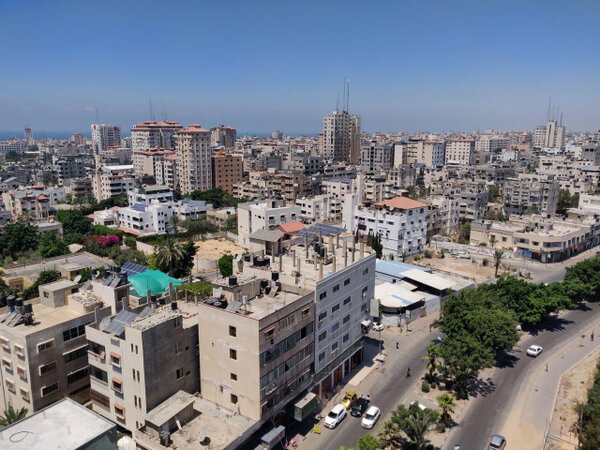
Swiss TPH Der Kurs Internationale Zusammenarbeit und globale Gesundheit (IZGG) (aktualisierte Version des Allgemeinen Tropenkurses (ATK)) ist ein 8-wöchiger, ganztägiger Kurs. Er ist ausgerichtet auf Fachleute aus allen Gesundheitsbereichen (Pflege, Medizin, Gesundheitsförderung, Prävention, etc.) und andere Interessierte. Der Kurs ist in zwei Module (Internationale Zusammenarbeit und Globale Gesundheit, je 4 Wochen) gegliedert, welche unabhängig voneinander besucht werden können. Auch besteht die Möglichkeit, die Module in 2-wöchigen Blockkursen (Vernetzte Welt, Internationaler Kontext, Geographische Medizin und Gesundheitsinterventionen) zu besuchen. Modul A: Internationale Zusammenarbeit, 14. September – 9. Oktober 2020. Modul B: Globale Gesundheit, 12. Oktober – 6. November 2020
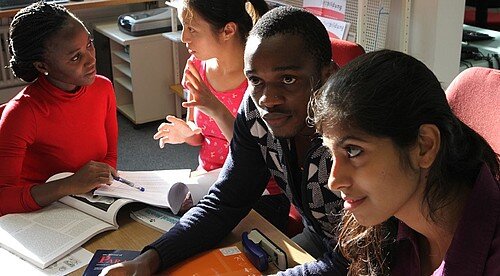
Swiss TPH Strong managers and leaders are needed to ensure sustainable and equitable health systems that can respond to current and future health needs. The MBA in International Health Management programme seeks to create a new generation of managers and leaders, building on their various skills sets and personalities in order to equip them for independent meso- and macro-level leadership positions by maintaining a global perspective and interdisciplinary approach to health. The MBA in International Health Management is taught in a blended-learning format (on-campus 1/4, distance based 3/4). More information about the course structure you find here (https://issuu.com/communications.swisstph/docs/tph_graifk2-mba-ihm_1_?fr=sY2U3NTI3MDM3)
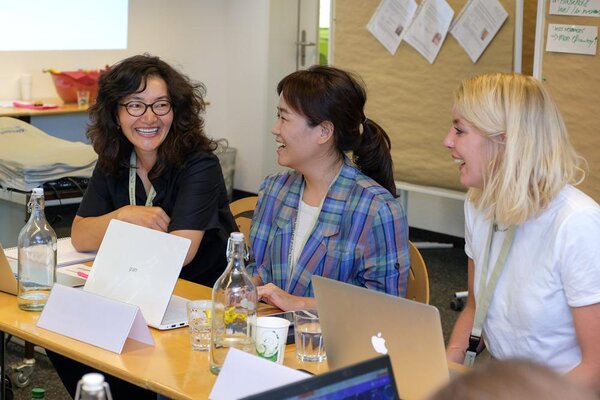
Swiss TPH Many problems related to healthcare quality and safety are the consequences of poorly managed medicines and medical supplies. This course introduces all elements of the supply chain cycle for medicines and other health commodities, including selection of medicines, procurement, distribution and use. Central to this is the management of the whole supply chain system, which comprises quality assurance, human resources, financing, relevant policies and regulations, and monitoring and evaluation. The course emphasises the importance of integrating supply chain activities into overall health system management. Duration: Preparation phase: starts 28 September 2020. On-campus: 26 – 30 October 2020 (subject to modification). Final Assignment: 18 December 2020 (6 ECTS).
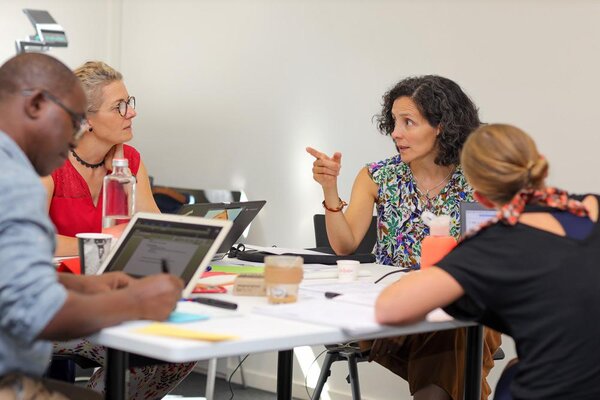
Swiss TPH In this course, students are equipped with project planning and project management tools and resources as they develop a small project that could be implemented at their workplace or other organisations. The project is an exercise in transferring students’ knowledge and experience to a practical setting. Students are encouraged to implement the project, at least parts of it, in a realworld situation. Preparation phase: starts 28 September 2020 Virtual seminar tuition phase 2 – 5 November 2020 Final Assignment: 18 December 2020 (10 ECTS).
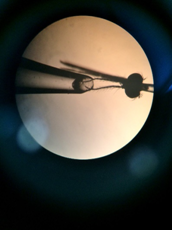
Swiss Malaria Group (SMG) The SMG is inviting academic institutions, public and corporate actors as well as multilateral organizations and civil societies to pool experiences gained from decades of work in the national and international health sector to identify concrete interventions that will contribute to reaching Universal Health Coverage (UHC). Covid-19 has shown the crucial role of strong health systems in fighting diseases and in providing uninterrupted routine services even during a pandemic. These findings apply universally to countries in all parts of the world, including Switzerland. Joint knowledge of all sectors and partners is essential for redefining how we prepare for future health crises by building more resilient health systems globally. Since 2007 the Swiss Malaria Group (SMG) unites academic, public and private actors engaged in the fight against malaria. Combining long-term experience and engagement in global health, the SMG and its member organizations can provide support and guidance towards strategies for more resilient health systems that will allow us to better manage current and future health problems. More information about the event will follow in due course.
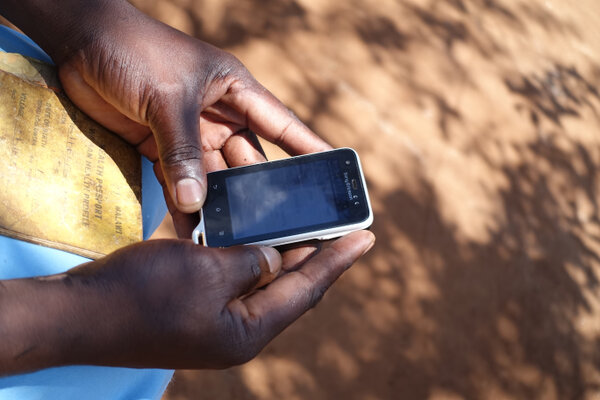
Medicus Mundi Schweiz Die Digitalisierung betrifft uns alle. Telemedizin, webbasierte Diagnosetools, digitale Datenerfassung und künstliche Intelligenz (KI), um nur einige zu nennen, haben vielfältige Auswirkungen auf die Gesundheit sowie auf die Gesundheitssysteme und werden die Landschaft der globalen Gesundheit nachhaltig verändern. Die Diskussion von Themen rund um "Big data", Datenbesitz, Daten-Hosting, Datenschutz und anderen ethischen Fragen sind von entscheidender Bedeutung, um sicherzustellen, dass die digitalen Technologien der Gesundheit für alle den grösstmöglichen Nutzen bringen. (Foto: © Christoph Pimmer)

Schweizerische Gesellschaft für Parasitologie und Tropenmedizin Cancellation of the Joint Annual Meeting November 2020: Sadly, we had to take the unpleasant decision to cancel our joint annual SSTMP-SSTTM meeting this year due to the Corona pandemic situation. However, we are planning to conduct an online meeting to give a platform to young investigators and keynote speakers to update society members and interested participants on their latest research and field of expertise, followed by an open discussion. This might not compensate for a face to face meeting, but we believe, we all have to adapt to the situation and will benefit from “applied digital innovation” under these circumstances! More information will follow.
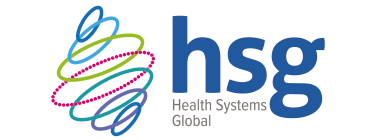
hsr2020 Ten years on from the First Global Symposium on Health Systems Research, health systems around the world are still far from achieving the Sustainable Development Goal to “Ensure healthy lives and promote well-being for all at all ages”. They remain predominantly sick care systems - disconnected from the broader upstream forces influencing health. A fundamental paradigm shift is needed if health systems are to be equipped to address complex and interconnected health and development challenges. The Sixth Global Symposium on Health Systems Research (HSR2020) will seek to break old silos and re-orient health systems to address public health and engage the political, social, and environmental forces that perpetuate health inequities and social injustices. It will explore how technological, data and social innovations can address these challenges, and how health systems research can support essential transformations in health systems.
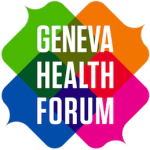
Geneva Health Forum Health systems are facing serious dynamic challenges. Resources are increasingly limited in a rapidly changing world, where the nature of health needs are equally changeable. However, technological progress in the digital age and the emergence of new health actors expand our array of potential solutions to these unprecedented challenges. (Photo: GHF)

MMS You are most welcome to join our Civil Society Afterwork. Co-organizers: Medicus Mundi Suisse, Fedevaco, FGC, Médecins du Monde, IAMANEH and AMCA in the frame of Geneva Health Forum 2020, Improving Access to Health: learning from the field. Contact: Andréa Rajman, Medicus Mundi Suisse, arajman@medicusmundi.ch (Photo: Cité de la Solidarité Internationale, Annemasse, France)
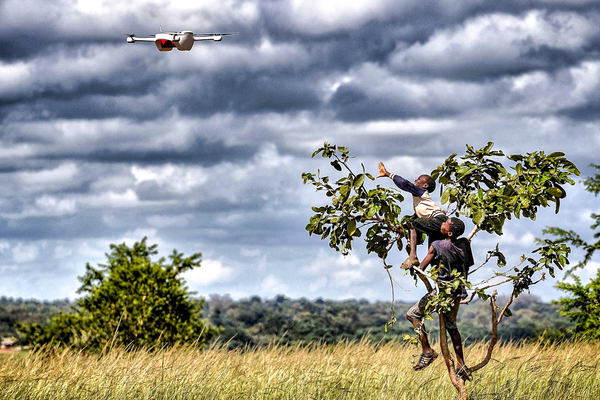
Swiss TPH Strong and resilient supply chains ensure the provision of quality health products to patients, making them a central component of health systems. The availability of health commodities is vital for the achievement of Universal Health Coverage and the Sustainable Development Goals.
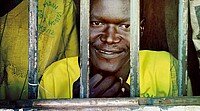
Swiss TPH Swiss TPH offers this one-week course in collaboration with the International Committee of the Red Cross (ICRC) to give health professionals the information, methods and tools needed to analyse and address health and human rights issues affecting people in detention. The course covers topics such as detainee health, health systems, control of communicable and non-communicable diseases and ethical issues that arise when providing healthcare services to populations in detention. It also provides an overview of the main legal instruments, professional codes and declarations designed to protect the rights of prisoners, detainees and patients. This course is open to participants working in the field of health in detention, nationally or internationally, and uses a multi-disciplinary approach to bring together academics and clinical, public health and legal experts.

Swiss TPH The Travellers’ Health course prepares health professionals and travel industry staff to give relevant health information to travellers and to assess travel-related problems occurring during and after travel, with a special focus on tropical diseases. At the end of the course, participants will be able to provide up-to-date information in travel medicine. This includes preventive pre-travel advice, including immunizations and other aspects during travel, appropriate risk assessment and behaviour during travel and management of travel-related diseases based on individual and epidemiological features. This course is supported by WHO, TropNet and the Swiss Society of Tropical and Travel Medicine.
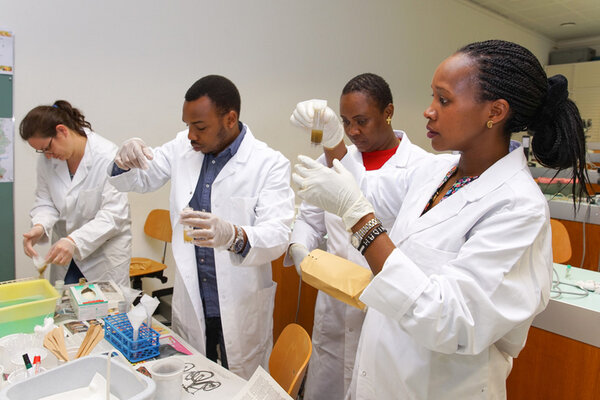
Swiss TPH The 14-week Health Care and Management (HCM) diploma course provides international participants with the core competencies to understand and react to health challenges (e.g. health care, child health, etc. ) at a world-leading institute in global and public health. Participants acquire a range of skills and knowledge needed to work as a member of a health management team, particularly in low- and middle-income societies. With a focus on practical application and interactive training, multinational participants benefit from engaging with experts from various fields and with a diverse student body to advance their position in the health sector. HCM also serves as the core course for the tropEd network, the European Network for Education in International Health, and is mandatory for those who wish to pursue a Master in International Health (MIH).
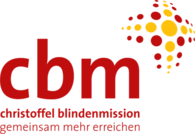
Bewerbungsfrist: 9. August 2020
Die CBM Christoffel Blindenmission ist eine international tätige, christliche Entwicklungsorganisation und fördert Menschen mit Behinderungen in Armutsgebieten. Zur Unterstützung der Abteilung Advocacy sucht die CBM Schweiz per sofort oder nach Vereinbarung eine*n Projektleiter*in Advocacy (100%). Jobsharing möglich. Wir freuen uns, mehr von Ihnen zu erfahren und auf Ihre Bewerbung per E-Mail an: mirjam.gasser@cbmswiss.ch.

Bewerbungsfrist: 9. August 2020
Die CBM Christoffel Blindenmission ist eine international tätige, christliche Entwicklungsorganisation und fördert Menschen mit Behinderungen in Armutsgebieten. Zur Unterstützung des neuen Bereichs Fortbildung und Beratung (Teil der Abteilung Internationale Programme) sucht die CBM Schweiz per sofort oder nach Vereinbarung eine*n Fachmitarbeiter*in Fortbildung und Beratung & Programmkoordinator*in (insgesamt 60-80%). Wir freuen uns, mehr von Ihnen zu erfahren und auf Ihre Bewerbung per E-Mail an: denis.hofer@cbmswiss.ch.

IAP Bericht 2020
Vor vier Jahren beauftragte der UN-Generalsekretär das Independent Accountability Panel (IAP) mit einer Überprüfung der Fortschritte bei der Umsetzung der Globalen Strategie der EWEC (Every Women, every Child) hinsichtlich der Gesundheit von Frauen, Kindern und Jugendlichen. Die nun vorliegenden Zahlen geben Grund zur Besorgnis: Die Schliessung von Diensten im Bereich der sexuellen und reproduktiven Gesundheit aufgrund von COVID-19 oder der Abzug von Gesundheitspersonal zur Corona-Behandlung sind nur einige Beispiele, die zur Verschlechterung der gesundheitlichen Situation beitragen. Prognostiziert wird zudem eine Zunahme von bis zu 45% mehr Todesfälle während der Schwangerschaft und 15 Millionen weiterer Fälle von geschlechtsspezifischer Gewalt je drei Monate im Lockdown. (Photo by Alesia Kazantceva on Unsplash)

"Non-communicable diseases (NCDs) are a major challenge of this century highly rooted on overweight, obesity and unhealthy diets. As part of their right-to-health duties, States should address the diet-related NCDs preventable risk factors and promote frameworks whereby the food and beverage industry convey accurate, easily understandable, transparent and comprehensible information on their products. Front-of-package warning labelling regulations are much needed in this regard." (Photo: Like_the_Grand_Canyon/flickr, C BY-NC 2.0)
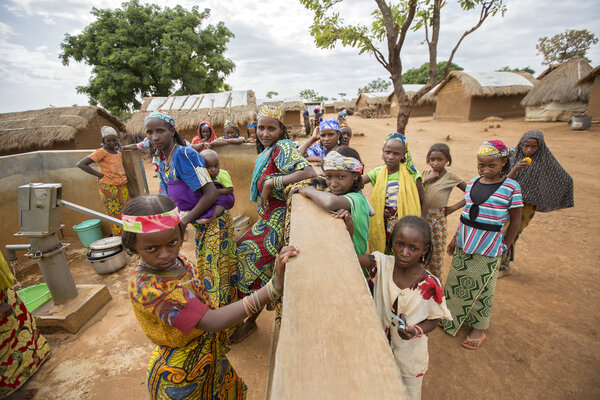
"Achieving the ambitious Universal Health Coverage (UHC) agenda requires challenging and changing entrenched gender and social norms, and structures of power, in order to reach across identities and towards the most vulnerable, marginalised and excluded. Since the September 2019 endorsement by UN member states of the UHC Political Declaration, we have seen calls for increased attention to adolescent health as a core element of UHC, and for a gender lens on UHC targets and goals. Adolescent girls exist at a troubled intersection of discriminations based on gender and age, which is exacerbated by other structural inequalities for all too many girls and vulnerable adolescents." (Photo: UN Women/flickr, CC BY-NC-ND 2.0)
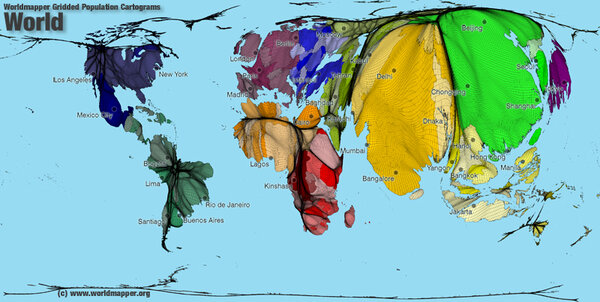
Lancet veröffentlicht neue Prognosen
Ein internationales Forscherteam prognostiziert für die nächsten Jahrzehnte große Veränderungen in der Weltbevölkerung. Die Ergebnisse deuten darauf hin, dass anhaltende Trends beim Bildungsstand von Frauen und beim Zugang zu Verhütungsmitteln den Rückgang der Fruchtbarkeit beschleunigen und das Bevölkerungswachstum verlangsamen werden. Politische Optionen zur Anpassung an die anhaltend niedrige Fruchtbarkeit bei gleichzeitiger Verbesserung der reproduktiven Gesundheit von Frauen werden deshalb in den kommenden Jahren von entscheidender Bedeutung sein.
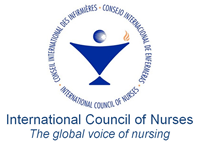
Press release
Geneva, Switzerland, 29 July 2020 – "The International Council of Nurses’ (ICN) new report "COVID-19 and the International Supply of Nurses" reveals the perilous state of the global supply of nurses and how it has left so many poorer states with fewer nurses than they need. It also calls for the implications of the COVID-19 pandemic on nurse mobility to be taken into full consideration.The report, written by Professor James Buchan, Adjunct Professor, University of Technology, Sydney and ICN Chief Executive Officer Howard Catton, released today, underlines that if high-income countries continue to recruit large numbers of overseas nurses, they will undermine the ability of low and middle-income countries to cope with the virus and dangerously weaken their health systems. (Photo: Logo ICN)
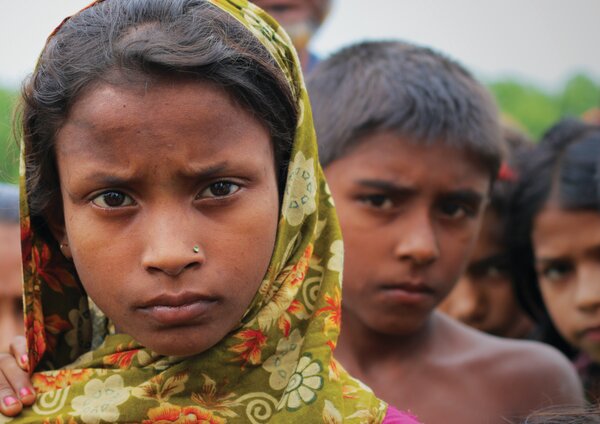
"The United Nations’ annual check-in on the Sustainable Development Goals wrapped up last week without the usual fanfare of thousands of visitors descending upon U.N. headquarters. (...) The pandemic is reversing decades of uneven development progress, making achievement of the goals “even more challenging,” according to “The Sustainable Development Goals Report 2020,” released by the U.N. at the beginning of the HLPF on July 7. An estimated 71 million people are expected to be pushed back into extreme poverty in 2020. Here are some major takeaways from the recently concluded two-week meeting — and what it might signal for the largely virtual opening of the U.N. General Assembly in September." (Photo by Adrien Taylor on Unsplash)
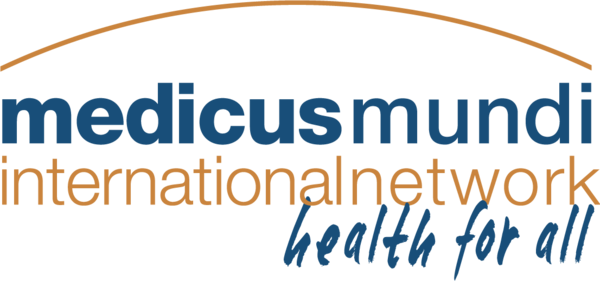
“Advance cooperation and solidarity for health equity within and beyond aid”
For many countries and societies struggling with access to health and health equity, aid is still a challenging reality, and this reality needs to be examined and acted on: What’s wrong with “health aid” and its actors, structures, paradigms and policies, methods and processes, and how can the failures and shortcomings of aid be addressed? All in all, how to achieve cooperation and solidarity within and beyond “aid”?
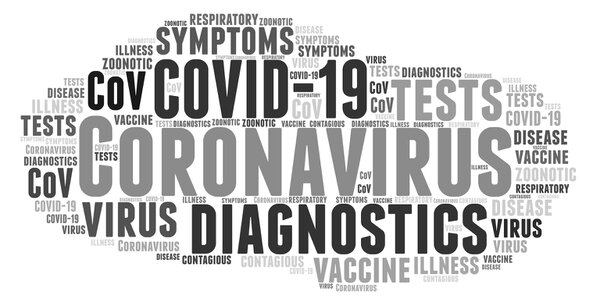
NEU im MMS Dossier
Die durch das Corona-Virus hervorgerufene Infektion und Erkrankung hat sich über die ganze Welt verbreitet, weshalb die Weltgesundheitsorganisation eine Pandemie ausgerufen hat. Während die medizinische Versorgung bereits in den europäischen Ländern an die Kapazitätsgrenzen stösst, wird sie im globalen Süden bei ähnlich steigenden Zahlen unmöglich sein. In diesem Dossier bieten wir Hintergrundinformationen zur Situation in ressourcenschwachen Ländern und politische Analysen zu den Folgen für die globale Gesundheit. Und wir informieren wie unsere Mitgliedorganisationen und deren Partnerorganisationen von der Situation betroffen sind und damit umgehen. (Foto: Coronavirus/EpicTop10.com/flickr, CC BY 2.0)
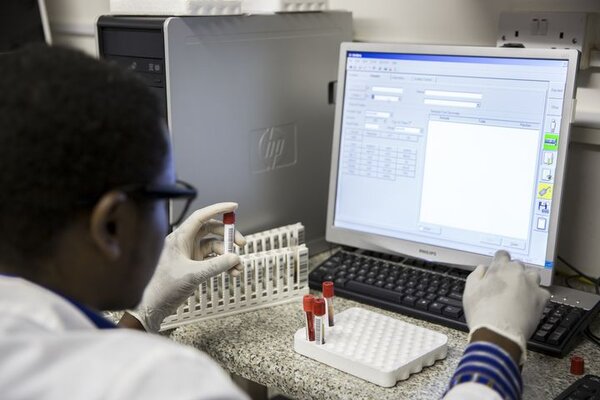
Neben der lebensrettenden Behandlung von Menschen mit HIV/Aids trägt die Newlands Clinic zur laufenden Verbesserung der antiretroviralen Therapie im südlichen Afrika bei. Möglich machen dies qualitativ hochstehende Langzeitdaten, die mit unserer eigenen Software ePOC gesammelt werden. (Foto: © RLF)
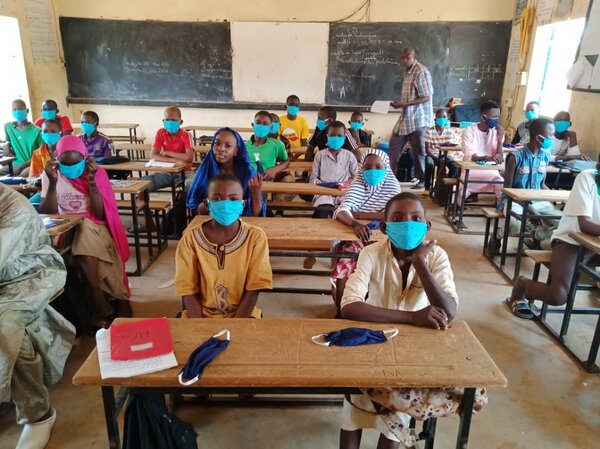
Nach der vorübergehenden Schliessung, welche die Eindämmung der Corona-Pandemie zum Ziel hatte, haben die von Enfants du Monde unterstützten Schulen in Burkina Faso und Niger ihre Tore wieder geöffnet. Während der Corona-Krise mussten wir unsere Aktivitäten aufgrund der von den jeweiligen Regierungen ergriffenen Massnahmen zur Eindämmung der Epidemie anpassen oder sogar aussetzen. Um die Bildungsämter bestmöglich unterstützen zu können, haben wir eng mit unseren Partnern vor Ort zusammengearbeitet und die Entwicklung der Situation genau verfolgt. (Foto: Eine Schulklasse in Burkina Faso trägt Mundschutz/ © EdM)
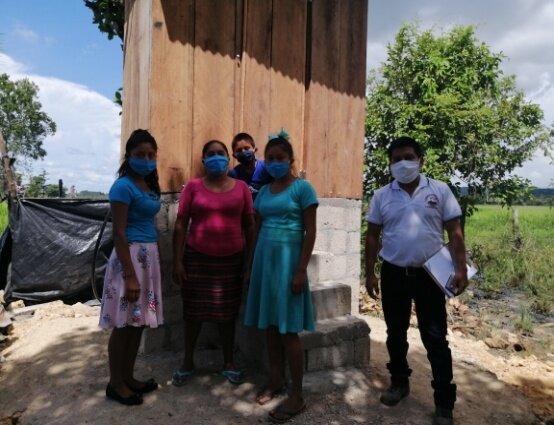
Depuis 2016, nous soutenons le projet de ACCODIL pour le développement des communautés rurales de la municipalité de La Libertad, au nord du pays. Leurs projets portent sur la prévention sanitaire, aussi mais pas seulement par la construction de latrines hygiéniques à profit des familles. Nous sommes heureux d’informer que la première partie du projet de construction de 30 de ces latrines c’est bien passée. La communauté de Naranjo compte depuis le 9 juillet de 16 de ces latrines, et autant de familles peuvent utiliser ces services, ce qui comporte une amélioration significative de l'état de santé de la communauté et du bien-être de ces familles. "Las familias agradecen profundamente el apoyo recibido a través de este importante proyecto de letrinas que viene a mejorar también la salud y el bienestar de las familias de nuestras comunidades." (Photo: Une équipe devant des latrines fraichement construites/ © CSSR)
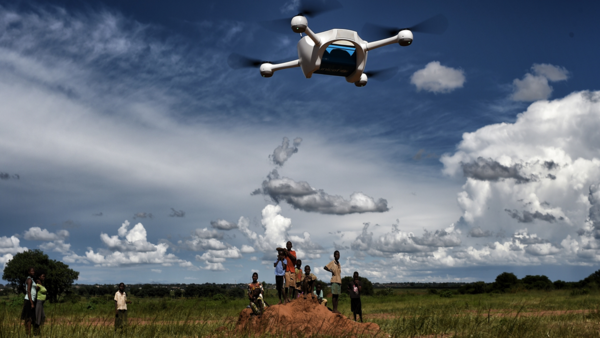
The use of drones in global health settings has rapidly evolved in the past years. As drone technology continues to expand beyond the military and recreational sectors, it is foreseen that it will have a significant role to play in healthcare delivery. A project supported by Swiss TPH tested the usefulness of drones in transporting tuberculosis drugs and diagnostic samples in Madagascar, and has found that in combination with other innovative interventions, they can be both cost-effective and contribute towards the goal of universal health coverage. (Photo: The integration of drones with other technology interventions in health systems has the potential to support access to universal health coverage / Photo credit: Messinis/Matternet)

Medienmitteilung
Die neusten SECO-Zahlen zu Kriegsmaterialexporten zeigen: Ungeachtet der Corona-Krise blüht das Exportgeschäft der Schweizer Rüstungsindustrie. Für eine wirksame Kontrolle der Waffenausfuhr wirkt terre des hommes schweiz in der Allianz der Korrektur-Initiative mit und bezieht klar Stellung zum indirekten Gegenvorschlag des Bundesrates. (...) «Es braucht eine stärkere demokratische Kontrolle der massiv steigenden Waffenexporte», sagt Andrea Zellhuber von der Fachstelle Gewaltprävention bei terre des hommes schweiz. Die Entwicklungsorganisation für Jugendliche in Afrika, Lateinamerika und der Schweiz engagiert sich in der «Allianz gegen Waffenexporte in Bürgerkriegsländer». (Foto: Friedliche Demonstration von Jugendlichem unseres Partner-Projekts CIPO im brasilianischen Salvador da Bahia/tdhs)